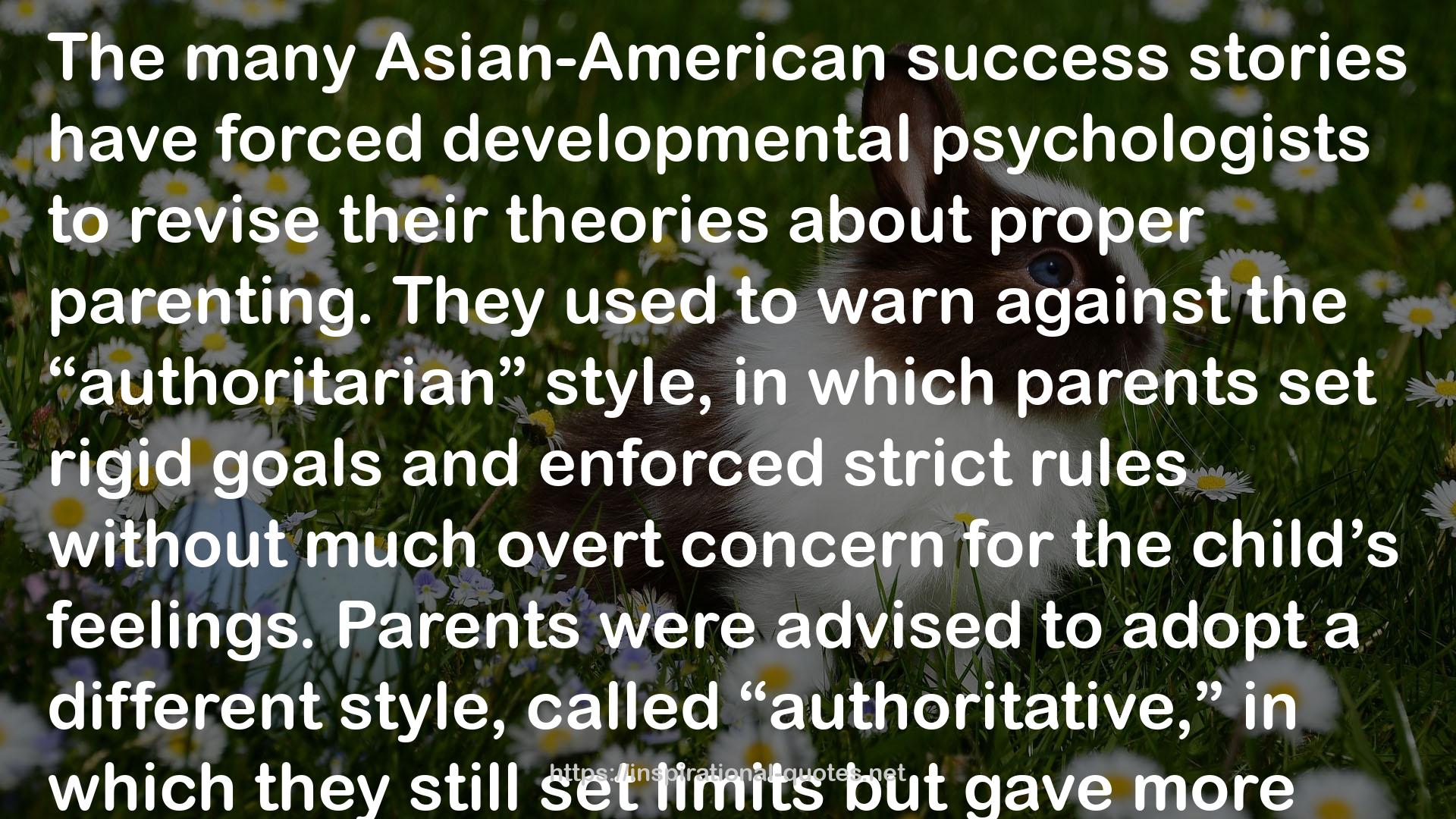" The many Asian-American success stories have forced developmental psychologists to revise their theories about proper parenting. They used to warn against the “authoritarian” style, in which parents set rigid goals and enforced strict rules without much overt concern for the child’s feelings. Parents were advised to adopt a different style, called “authoritative,” in which they still set limits but gave more autonomy and paid more attention to the child’s desires. This warmer, more nurturing style was supposed to produce well-adjusted, selfconfident children who would do better academically and socially than those from authoritarian homes. But then, as Ruth Chao and other psychologists studied Asian-American families, they noticed that many of the parents set quite strict rules and goals. These immigrants, and often their children, too, considered their style of parenting to be a form of devotion, not oppression. Chinese-American parents were determined to instill self-control by following the Confucian concepts of chiao shun, which means “to train,” and guan, which means both “to govern” and “to love.” These parents might have seemed cold and rigid by American standards, but their children were flourishing both in and out of school. The "
― Roy F. Baumeister , Willpower: Rediscovering the Greatest Human Strength
